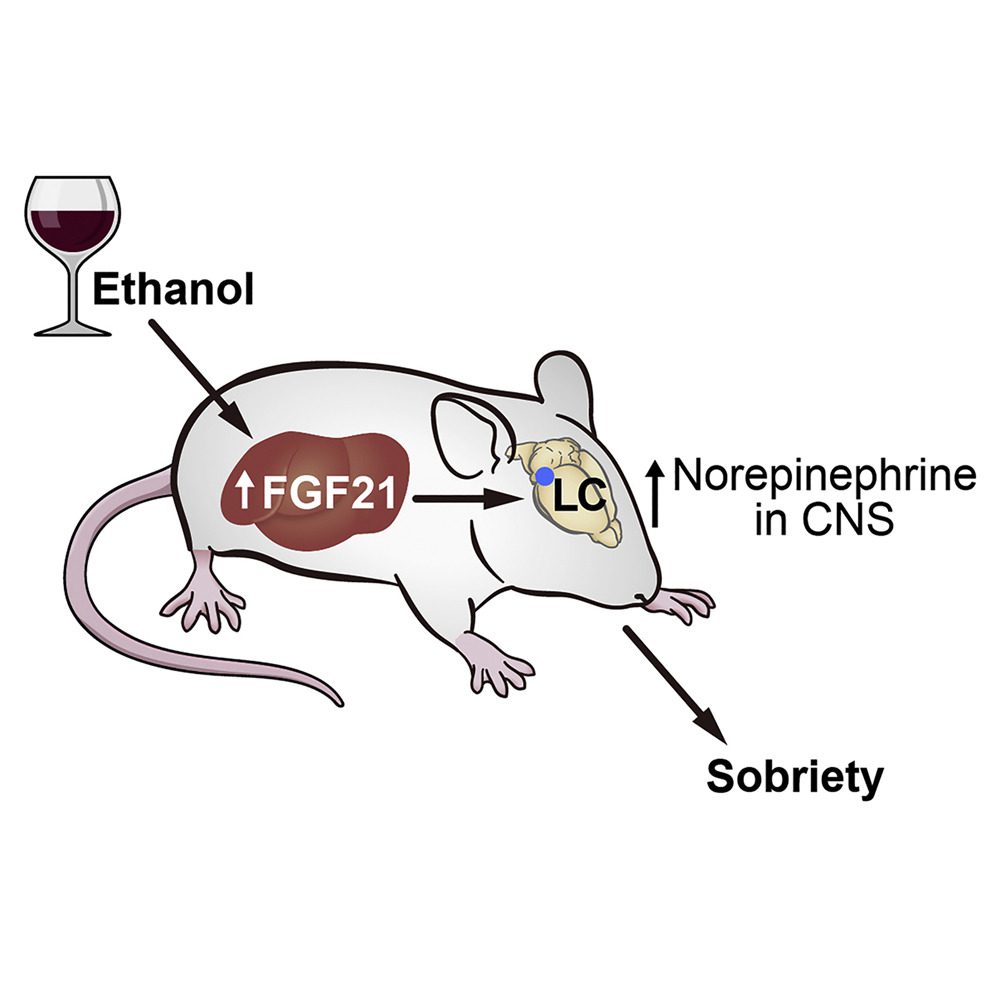When you’ve had one too many, staying on your feet can feel like an impossible task. In a new study, mice under the influence of alcohol were able to recover their balance and coordination thanks to the effects of the hormone fibroblast growth factor 21 (FGF21).
Mice, just like humans and other animals that consume sugars from fruit or nectar, have livers that have evolved to produce enzymes that can deal with ethanol. This system has its limits. Consume too much ethanol too quickly, and you can’t escape its inebriating effects; but luckily, the liver does have something else to fall back on.
“We’ve discovered that the liver is not only involved in metabolizing alcohol but that it also sends a hormonal signal to the brain to protect against the harmful effects of intoxication, including both loss of consciousness and coordination,” said Steven Kliewer of The University of Texas Southwestern Medical Center, co-senior author of the new study, in a statement.
The hormone in question is FGF21, and alcohol exposure is a key trigger for its production. Essentially, if you’ve been drinking, FGF21 acts like your sober best friend: previous studies have suggested that it suppresses the desire to drink more, promotes a thirst for water to prevent dehydration, and protects the liver against injury. What a guy.
Kliewer and co-authors have now demonstrated, through experiments in mice, that FGF21 plays an even broader role than was previously thought.
Alcohol was administered to mice that had been genetically altered so they would not produce FGF21, as well as control mice. While the ethanol was broken down at the same rate in both groups of mice, the researchers found that the mice without FGF21 took longer than their littermates to recover their balance and righting reflex (the ability to roll onto their feet when placed on their backs).
When the mice were given FGF21 as a pharmacological treatment, they were able to recover from their drunkenness roughly 50 percent more quickly than mice given a control treatment.
This effect was specific to alcohol. The team sedated mice with ketamine, diazepam, and pentobarbital, and FGF21 was not able to counteract any of these.
The researchers demonstrated that FGF21 directly activates brain cells in the locus coeruleus, but further study is needed to fully characterize this pathway. The locus coeruleus is a small area of the brainstem that is the main source of norepinephrine (sometimes called noradrenaline) in the central nervous system. It’s an area that has represented something of a mystery for neuroscientists over the years, but one of its main functions is to control alertness.
It’s known that both FGF21 and this brain system are activated by alcohol consumption in humans, but it’s still too early to tell whether these findings in mice will also translate to people.
“Our studies reveal that the brain is the major site of action for FGF21’s effects,” said co-senior author David Mangelsdorf. “We are now exploring in greater depth the neuronal pathways by which FGF21 exerts its sobering effect.”
The paper is published in Cell Metabolism.
Source Link: How This Hormone Helps Tipsy Mice Sober Up
